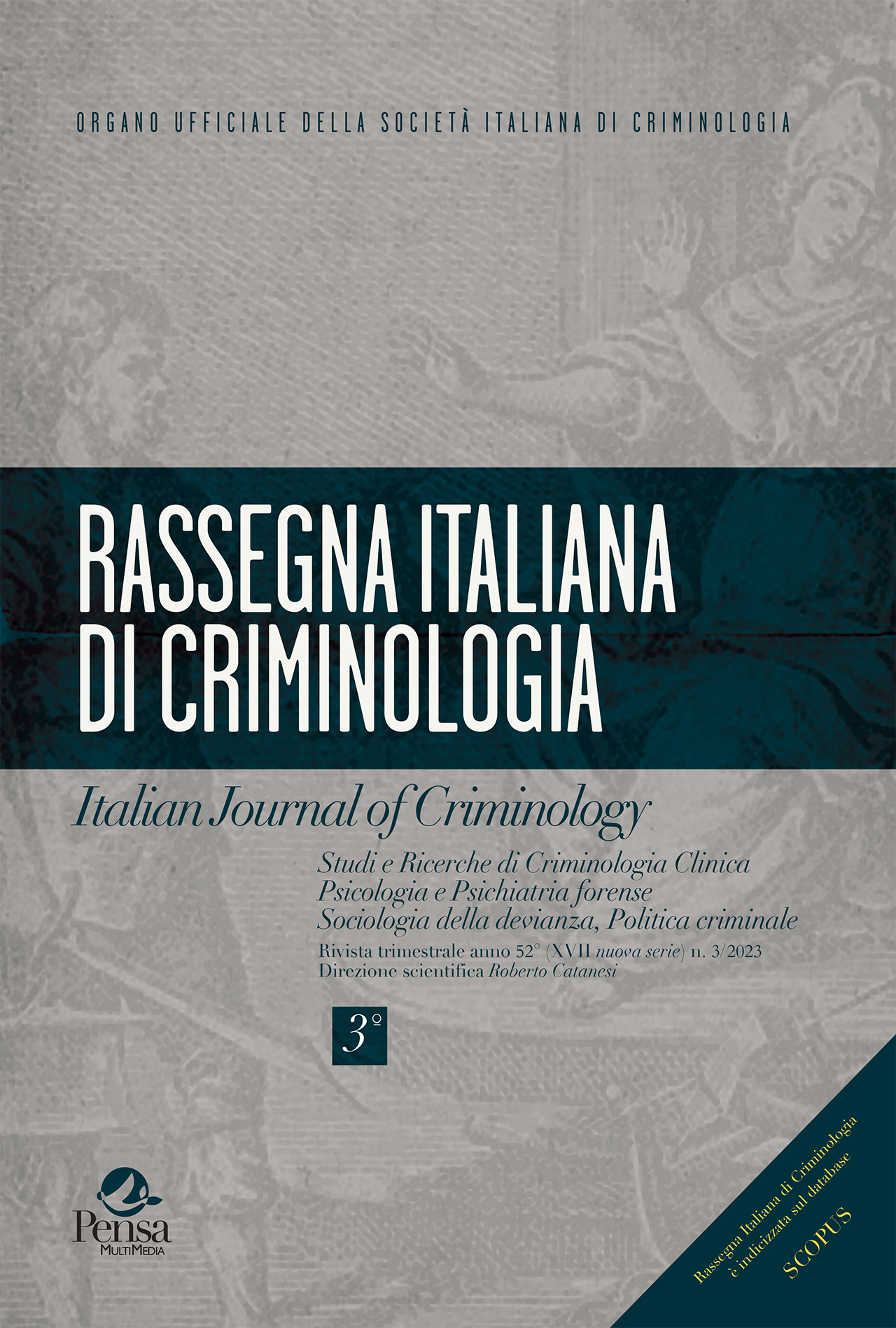Urban security, public space and the control of protest. Some lessons from Italy and Spain
DOI:
https://doi.org/10.7347/RIC-032023-p180Abstract
The article discusses the connection between urban security and public order, and the related processes of criminalization of both urban marginality and protest, in two European countries, Italy and Spain. I focus on these main points. First, the criminalization pursued by both these different branches of policies is to be found in contemporary views on public space, in the changing political economy of the city, and in the increasing State authoritarianism in European democracies. Second, both urban marginality and protesters perfectly embody the idea of a public enemy, whose presence in the urban space endangers the neoliberal project of a safe, clean city. Third, the legal concepts and practices enforced to criminalize urban marginality and protest, particularly street protest, become interchangeable, and criminal justice measures are applied in combination with administrative and hybrid tools. Fifth, the shift is, at least in the Italian case, strongly connected to the “centralization turn” taken by Italian urban security policies in the first decade of 2000, when policies that were meant to be mostly preventive and “local” gradually transformed into national and more punitive public security, and ultimately public order, policies. My arguments are based on the analysis of law reforms, institutional documents, and findings from studies on the criminalization of urban marginality and of protest activities in both countries.





